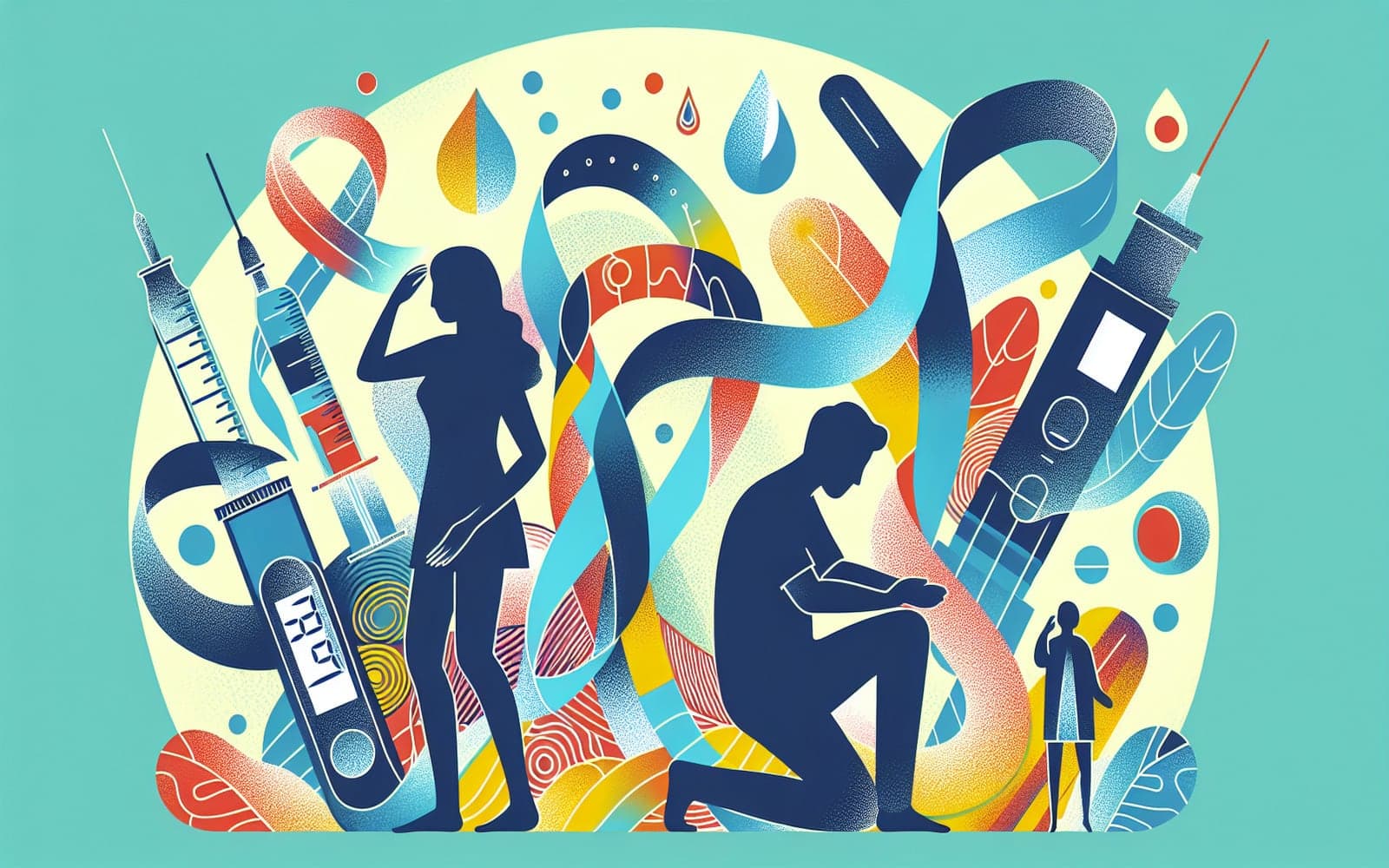The Hidden Dangers of High Blood Sugar in Type 1 Diabetes
Published: Jun 05, 2024

Medically reviewed by Benjamin Seth Martinez | MD, Statpearls - Director of Clinical Content on June 5th, 2024.
High blood sugar, or hyperglycemia, is more than just a number on a meter for people with type 1 diabetes. It's a risk factor that can lead to serious health problems over time.
Contents
The Domino Effect on Your Body
Persistent high blood sugar can damage blood vessels and nerves throughout your body. It's like a river overflowing its banks - the excess sugar can erode and damage everything in its path. This can lead to problems with your eyes, kidneys, nerves, and heart.
The Sneaky Long-Term Risks
Even if you feel fine now, high blood sugar can increase your risk of heart disease and stroke in the future. It's like a ticking time bomb - you might not notice it now, but the damage accumulates over time. Studies show that people with poorly controlled diabetes have a 2-4 times higher risk of cardiovascular disease.

The Good News: You Can Fight Back
While the risks are serious, they're not inevitable. Good blood sugar control can significantly reduce these risks. It's like having a shield against diabetes complications. Research shows that intensive blood sugar control can reduce the risk of complications by up to 76%.
Frequently Asked Questions
Generally, above 180 mg/dL after meals or 130 mg/dL before meals.
Some damage can be slowed or stopped, but not always reversed.
Typically 4-10 times daily, or use continuous glucose monitoring.
Key Takeaways
While high blood sugar poses serious risks, with good management, you can significantly reduce your chances of developing complications.
Concerned about your blood sugar levels? Talk to Doctronic about strategies to keep your glucose in check.Related Articles
References
Diabetes Control and Complications Trial Research Group. N Engl J Med 1993; 329:977.
Nathan DM, et al. N Engl J Med 2005; 353:2643.
This article has been reviewed for accuracy by one of the licensed medical doctors working for Doctronic. Always discuss health information with your healthcare provider.

